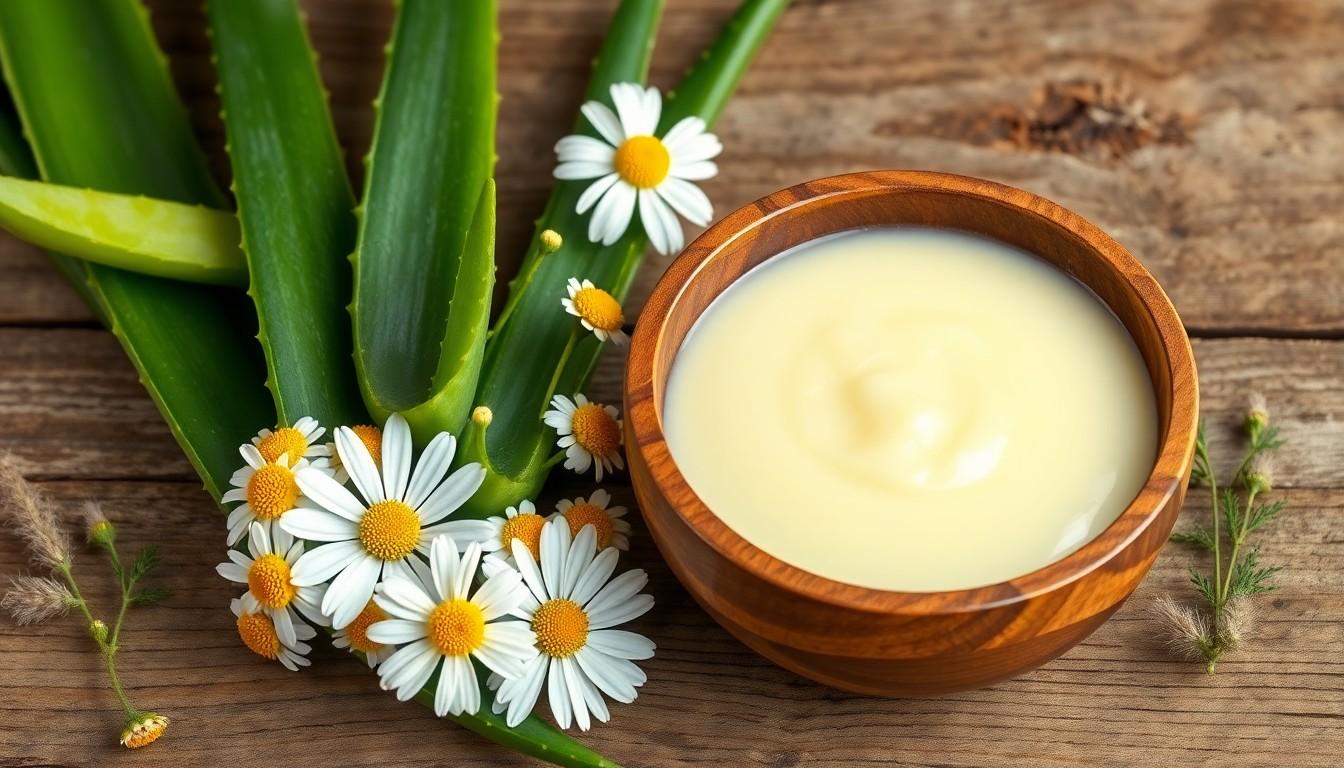In a world where skincare routines can feel more like a chemistry experiment gone wrong, herbal wellness skin care offers a refreshing alternative. Imagine slathering your face with nature’s finest ingredients instead of a lab full of unpronounceable chemicals. It’s like inviting Mother Nature to your beauty cabinet—who wouldn’t want that?
herbal wellness skin care
Herbal wellness skin care offers a gentle, effective alternative to traditional skincare. This approach emphasizes natural ingredients derived from plants, herbs, and botanical extracts. Using herbal formulations provides various benefits, such as minimizing exposure to synthetic chemicals.
Skin benefits emerge from various herbs known for their therapeutic properties. Aloe vera, for instance, hydrates and soothes irritated skin effectively. Chamomile calms inflammation, while tea tree oil acts as an antibacterial agent, promoting clearer skin. Together, these ingredients create a harmonious blend for a holistic skincare routine.
Many consumers appreciate the transparency of herbal products. Labels often highlight plant-based components, giving users confidence about what they apply to their skin. The absence of harmful chemicals aligns with a growing desire for sustainable, eco-friendly choices in personal care.
Customization plays a key role in herbal wellness skin care. Individuals can select products based on specific skin types and concerns. Dry skin may benefit from nourishing oils like coconut, while oily skin often responds well to lighter formulations like witch hazel.
Formulating skincare routines with herbs fosters not only good skin health but also wellness practices. Incorporating rituals such as face masks and herbal infusions encourages mindfulness. This connection between self-care and nature proves essential for many seeking holistic approaches to beauty.
Interest in herbal wellness skin care continues to grow, making it a key trend within the beauty industry. Brands focus on sustainability and ethical sourcing, enhancing the appeal of natural skincare alternatives.
Key Ingredients in Herbal Skin Care

Herbal skin care relies on natural ingredients that provide targeted benefits for skin health. Key components include aloe vera and chamomile, both known for their effectiveness and soothing properties.
Benefits of Aloe Vera
Aloe vera offers significant hydration and soothing effects. Recognized for its ability to moisturize dry skin, it aids in maintaining a healthy skin barrier. Skin appears more plump and vibrant with regular use of aloe vera. It also provides relief from minor burns and irritations, promoting faster healing. Rich in vitamins and antioxidants, aloe vera protects the skin from environmental stressors. With its calming properties, sensitive skin feels rejuvenated after application of aloe vera-based products.
Healing Properties of Chamomile
Chamomile possesses strong anti-inflammatory properties that calm and soothe irritated skin. Recognized for its gentle nature, chamomile helps reduce redness and puffiness. Skin sensitivity decreases after incorporating chamomile into daily routines. Packed with antioxidants, it combats free radicals and supports skin repair. Chamomile also features natural antibacterial qualities, promoting clearer skin. By incorporating chamomile-infused products, users experience enhanced skin health and resilience.
Popular Herbal Wellness Skin Care Products
Herbal wellness skin care features a variety of products designed to nourish and heal the skin naturally. Many consumers seek effective solutions that promote health and sustainability.
Product Reviews and Recommendations
Popular products often highlight key ingredients for various skin types. A well-regarded brand is Herbivore Botanicals, known for its cruelty-free and non-toxic formulas. Their Blue Tansy Oil soothes and helps clear blemished skin. Origins creates the Drink Up Intensive Overnight Mask, which uses avocado and Swiss Glacier Water for intense hydration. Additionally, products from The Body Shop, like Tea Tree Oil, offer antibacterial properties ideal for acne-prone skin. These brands align with the trend toward transparency and sustainability, ensuring consumers know what they apply on their skin.
DIY Herbal Skin Care Remedies
Creating herbal skin care remedies at home provides customization options tailored to individual needs. Start with a simple aloe vera gel, which hydrates and calms irritated skin. Combine fresh aloe vera with a few drops of lavender essential oil for a soothing night treatment. Another effective remedy is a chamomile-infused face steam; steep dried chamomile flowers in hot water and inhale the steam to reduce redness and inflammation. Oatmeal masks offer relief for dry skin; mix ground oats with honey to nourish and hydrate. These easy recipes leverage the healing powers of nature, adapting to various skin concerns.
The Science Behind Herbal Ingredients
Herbal ingredients play a crucial role in skin care, providing natural benefits that enhance overall skin health. Aloe vera stands out with its ability to hydrate and soothe skin, making it an essential component in many formulations. Rich in vitamins and antioxidants, aloe vera protects against environmental stressors, supporting a healthy skin barrier.
Chamomile contributes significant anti-inflammatory properties, calming irritated skin and minimizing redness. Its antioxidant content aids in skin repair, promoting a more balanced complexion. These properties also support the skin’s natural healing processes.
Tea tree oil, known for its antibacterial qualities, targets acne and improves skin clarity. Users often notice clearer skin after consistent application, benefiting from tea tree’s natural potency. Each ingredient serves a specific purpose, emphasizing the therapeutic potential of plant-derived components.
Research continues to validate the effectiveness of herbal ingredients in skin care. Studies show that natural extracts can penetrate skin layers effectively, delivering nutrients where they are needed most. This scientific backing enhances the credibility of herbal wellness in skin care routines.
Brands increasingly focus on sustainable practices when sourcing herbal ingredients. Ethical sourcing aligns with consumer values, fostering trust and transparency. Designated labels often reflect the use of eco-friendly practices, appealing to conscious consumers.
Customization remains a noteworthy aspect of herbal skin care. Individuals can choose products that address their unique skin types and concerns, making personalization a priority. Incorporating these ingredients into daily rituals promotes a deeper connection with self-care routines, encouraging a mindful approach to beauty.
Overall, the science supporting herbal ingredients illustrates their effectiveness and relevance. Skincare products rooted in nature resonate with consumers, highlighting the ongoing trend towards herbal wellness.
health and harmony with nature
Herbal wellness skin care stands out as a refreshing approach to beauty that embraces nature’s power. By prioritizing plant-based ingredients and minimizing synthetic chemicals, individuals can nurture their skin while supporting sustainable practices. The effectiveness of herbs like aloe vera and chamomile not only enhances skin health but also promotes a deeper connection to the environment.
As consumers increasingly seek transparency and customization in their skincare routines, herbal products offer a fulfilling solution. This trend reflects a broader shift towards holistic beauty practices that prioritize well-being and mindfulness. Embracing herbal wellness skin care isn’t just about improving appearance; it’s about fostering a lifestyle that values health and harmony with nature.




